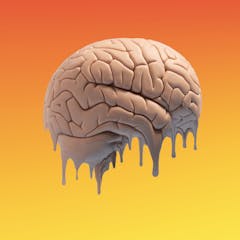
Articles on Senses
Displaying 1 - 20 of 86 articles

Shouting, squelching, singing, constantly moving, ancient urban wineries were an assault on the senses

The lack of an inner monologue seems linked to a lower ability to recall words and predict their sound.

Philosophers have been debating whether we need conditioning to link information from different senses for centuries.

Let’s delve into the three super-senses of dolphins: magnetic perception, electrical perception and echolocation.

Our bodies have a dedicated channel for sensing only the very lightest of touches.

Detecting and tracking motion is key to survival. The ability to extract auditory information from a noisy environment changes when your brain isn’t wired to rely on vision.

Rapidly changing temperatures and sensory environments are challenging the nervous systems of many species. Animals will be forced to evolve to survive.

Flies often beat out competitors for food because of their specialized sensing organs called antennae.

When fruit flies see other dead fruit flies, their life spans are cut short. Other species also undergo analogous physiological changes when seeing their dead.

Motion sickness results when your senses report conflicting information to your brain that it can’t reconcile based on its expectations about how the world works.

No two people will react to the same smell in the same way.

A cultural collaboration with deafblind people led to the development of a high-tech device to help navigate their world post-lockdown

A device could be use to transmit a camera’s video feed into moving patterns of electrical stimulation on the surface of the tongue.

Selling through smelling.

The brain’s somatosensory cortex may help enrich our emotional experiences and improve our mental health. Mindfulness and dance movement therapy may be effective ways to activate it.

There’s still a lot we don’t know about motion sickness – but the balance system seems to play a big role.

It’s intriguing how some people experience ASMR while others don’t - our latest research suggests that many ASMR responders are highly sensitive “orchids”.

If you ever feel like you can’t stop eating sugar, you are responding precisely as programmed by natural selection. What was once an evolutionary advantage has a different effect today.

Nobel prizewinning research has revealed the various molecules that help us sense temperature, touch, pain, and even the positioning of our body parts.

Learning that our brains process information differently when we’re standing up or lying down has implications for how we study and assess brain function.
